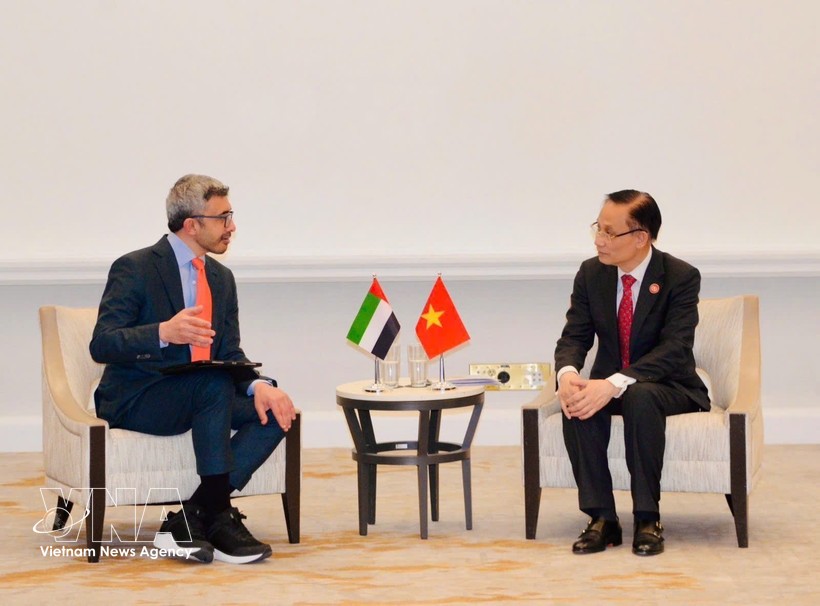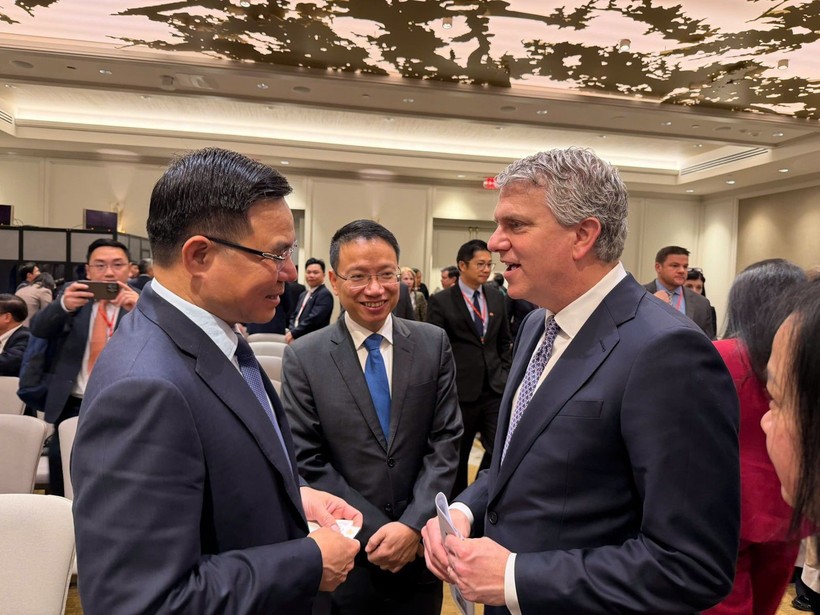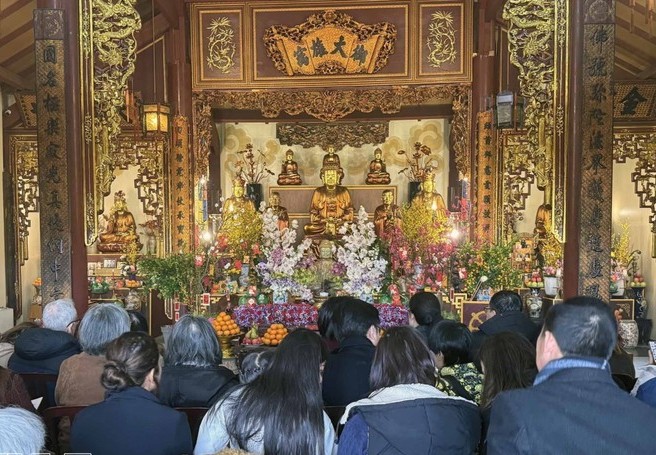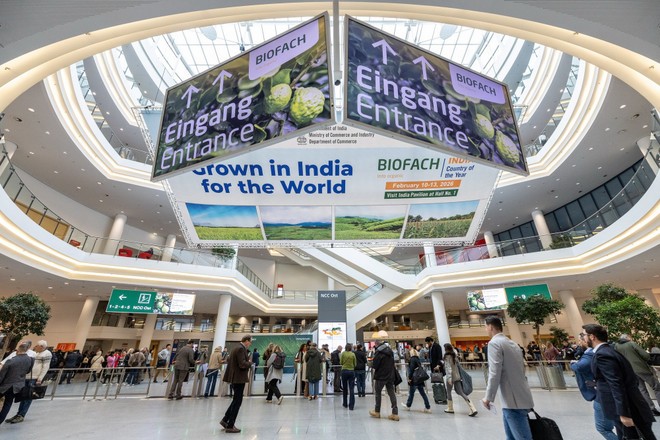International Support for Vietnam’s Halal Economic and Trade Development
| Conference Discusses Vietnam's Potential in Supplying Halal Food | |
| Malaysia and Vietnam Aim to Enhance Collaboration in Energy and Halal Sectors |
The event drew participation from representatives of the embassies of Algeria, Iran, Morocco, Sri Lanka, Pakistan, as well as officials from relevant ministries and agencies, and businesses with an interest in the Halal trade sector.
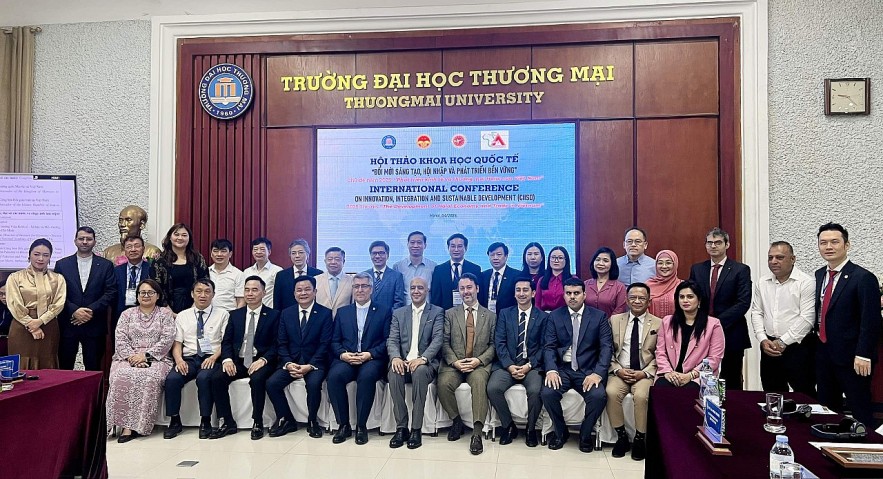 |
| International Scientific Seminar on Innovation, Integration, and Sustainable Development with the theme “Developing Vietnam’s Halal Economy and Trade”. (Photo: Mai Anh) |
Speaking at the opening ceremony, Associate Professor Dr. Nguyen Hoang, rector of the University of Commerce, said the seminar provided a platform for scientists, policymakers, diplomats, entrepreneurs, and ambassadors to share insights on the necessity, experiences, current realities, and solutions for developing the Halal economy and promoting Halal exports. It also created opportunities for Vietnamese scholars to exchange research and collaborate on projects with international peers.
Presentations at the seminar focused on key topics such as global trends and experiences in developing the Halal economy and trade, lessons for Vietnam; the institutions, strategies, and policies of the Vietnamese Party and State regarding access to the Halal market for international integration and sustainable development; the current state of Vietnam’s Halal economic and trade ecosystem; and proposed solutions for further development, among other related topics.
| Dr. Tran Thi Thu Huong, lecturer at the University of Commerce, explained that in Arabic, "Halal" means "permissible" and "lawful." Muslims only consume products certified Halal—those that contain no prohibited or unaccepted ingredients under Islamic law and have not come into contact with unlawful substances, tools, or environments during preparation, processing, transport, or storage. Products must be entirely free from Haram substances such as pork, donkey meat, carnivorous animals, insects, or blood. According to Dr. Le Huy Khoi from the Institute for Industrial and Trade Policy and Strategy, Vietnam is currently not among the top 30 global suppliers of Halal food. Its exports mostly consist of raw agricultural products that are unprocessed and do not require strict Halal certification. As of July 2024, around 41% of Vietnamese provinces and cities had not yet exported any Halal-certified products. Therefore, Vietnam needs practical support from both the government and private sector to unlock the potential of this promising industry. |
At the seminar, Kohdayar Marri, ambassador of Pakistan to Vietnam, stressed that if Vietnam truly wishes to attract Muslim tourists and boost exports to Muslim-majority countries, it must build a comprehensive Halal ecosystem. This includes not only providing Halal food but also offering culturally respectful and convenient spaces for religious practices.
To succeed in exporting Halal products, Vietnam must establish a reputation as a trustworthy food brand—offering high-quality, safe, delicious products that meet international standards. A Halal label means little without a strong commitment to quality, value, and customer respect. Especially as many countries have already advanced in this field with well-structured investments and active participation from their Muslim communities in the production chain.
“I see this as a valuable opportunity for Vietnam to foster cultural and religious understanding,” Ambassador Marri said. “Halal diplomacy is not merely about trading goods, but a commitment to respect, adaptability, and sincerity in international relations. The Embassy of Pakistan in Vietnam pledges to accompany Vietnam in this journey. We are ready to support, share experiences, and cooperate across all areas to explore the full potential of the Halal sector together.”
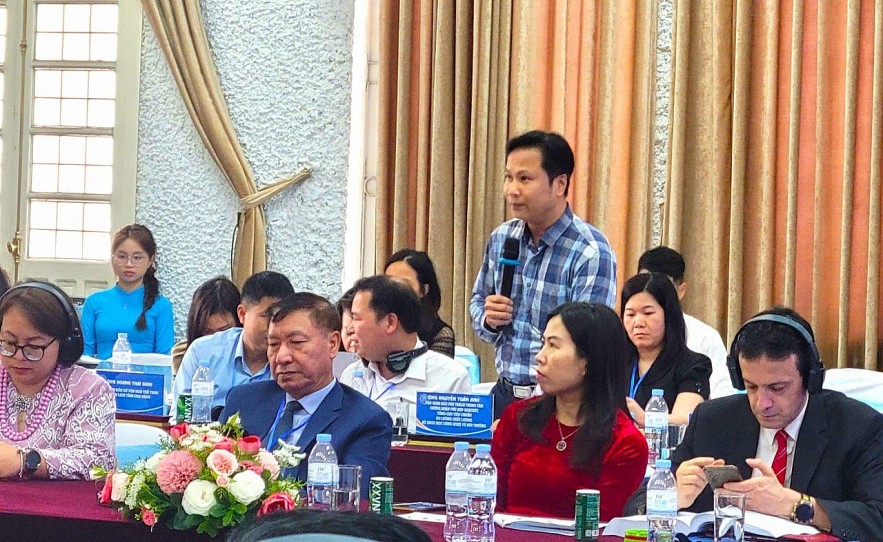 |
| Delegates in discussion at the seminar. (Photo: Cam Ly) |
In his closing remarks, Assoc. Prof. Dr. Nguyen Xuan Trung, director of the Institute for South Asian, West Asian, and African Studies, commended the intellectual and heartfelt contributions of all speakers, which greatly contributed to the seminar’s success.
He noted that the seminar’s expert committee would compile a policy recommendation report to be submitted to the National Assembly’s Economic and Financial Committee, the Party Central Committee’s Strategy Policy Board, the Ministry of Industry and Trade, the Ministry of Culture, Sports and Tourism, and the National Halal Certification Center—aiming to help Vietnam realize its vast potential and advance in the global Halal economy and trade sector.
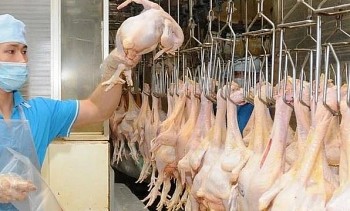 | Vietnam Seeks to Develop Halal Industry Despite lagging behind regional competitors, Vietnam has advantages to develop a Halal industry. |
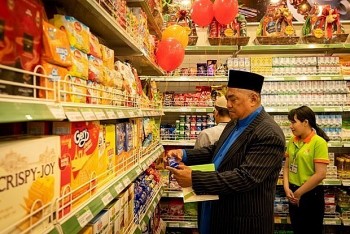 | Vietnam's Halal Industry: A Lucrative Opportunity in MENA According to VNA's reporter in the Middle East and North Africa (MENA), the latest report by market research and consulting organization Coherent Market Insights shows ... |




